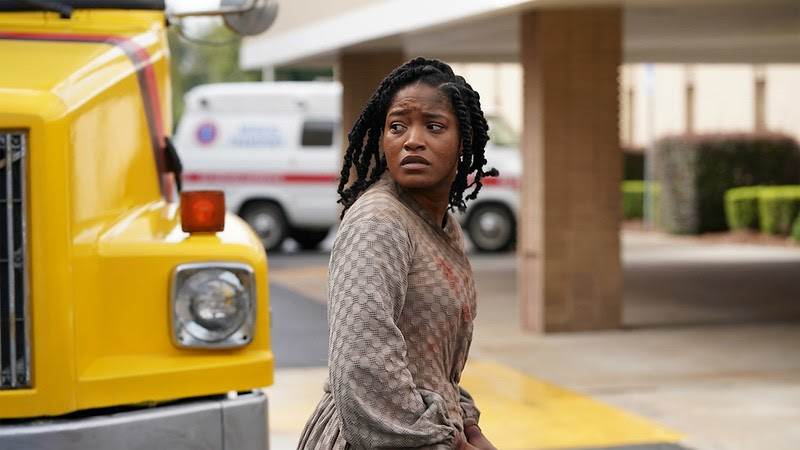Multi-hyphenate Keke Palmer reaches for the “O” in her inevitable EGOT with her greatest acting achievement to date in Alice. Written by Krystin Ver Linden in her directorial debut, the film is inspired by true stories of African Americans who remained enslaved over 100 years after the Emancipation Proclamation was signed. The film held its world premiere at the 2022 Sundance Film Festival.
Life is hard for Alice (Palmer), an enslaved woman on a plantation in rural Georgia. Following a violent altercation with plantation owner Paul (Jonny Lee Miller), Alice escapes to freedom only to find a 1970s world full of automobiles and semi-trucks to greet her. Rescued by a man named Frank (Common), Alice learns the truth about how her life should’ve been and vows to set her loved ones free.
A triumphant story of liberation, Keke Palmer carries the weight of the film magnificently. The first act is intense and full of mistreatment and she rises to all of these occasions. But it’s in the more subtle moments that her brilliance really shines. Alice’s fascination with a zipper on a pair of pants she’s given, or, after discovering TV, finding herself laughing at a clip from Sanford and Son.
A “T” away from an EGOT himself, Common adds real heart to the character of Frank, whose backstory is fleshed out through Alice finding bits of his past when left alone in his apartment. Progressive even for the 70s, Frank takes a while to believe Alice’s stories, but is nothing but a supportive and respectful character. Having been actively involved in Civil Rights Movement protests, Frank is a little hardened and the beauty of the character, and Common’s performance, is watching his rejuvenation after Alice inspires him to help her.
Krystin Ver Linden has a lot of fun with the 1970s esthetic, pulling in music from the era like “Higher Ground” by Stevie Wonder. The cinematography takes a trick from The Wizard of Oz, muting colors during Alice’s period of enslavement so that when she is free, the groovy esthetics really pop. Alice goes through a physical transformation as she settles into the period, modeled after the protagonist from the blaxploitation classic Coffy.
Alice is the kind of film that makes you want to jump for joy in the end. It’s about a woman with no agency who rises above her circumstances and finds her own strength and power. An inspiring story and character, you won’t soon forget Alice or Keke Palmer, who so masterfully brings her to life.
I give Alice 5 out of 5 stars.

